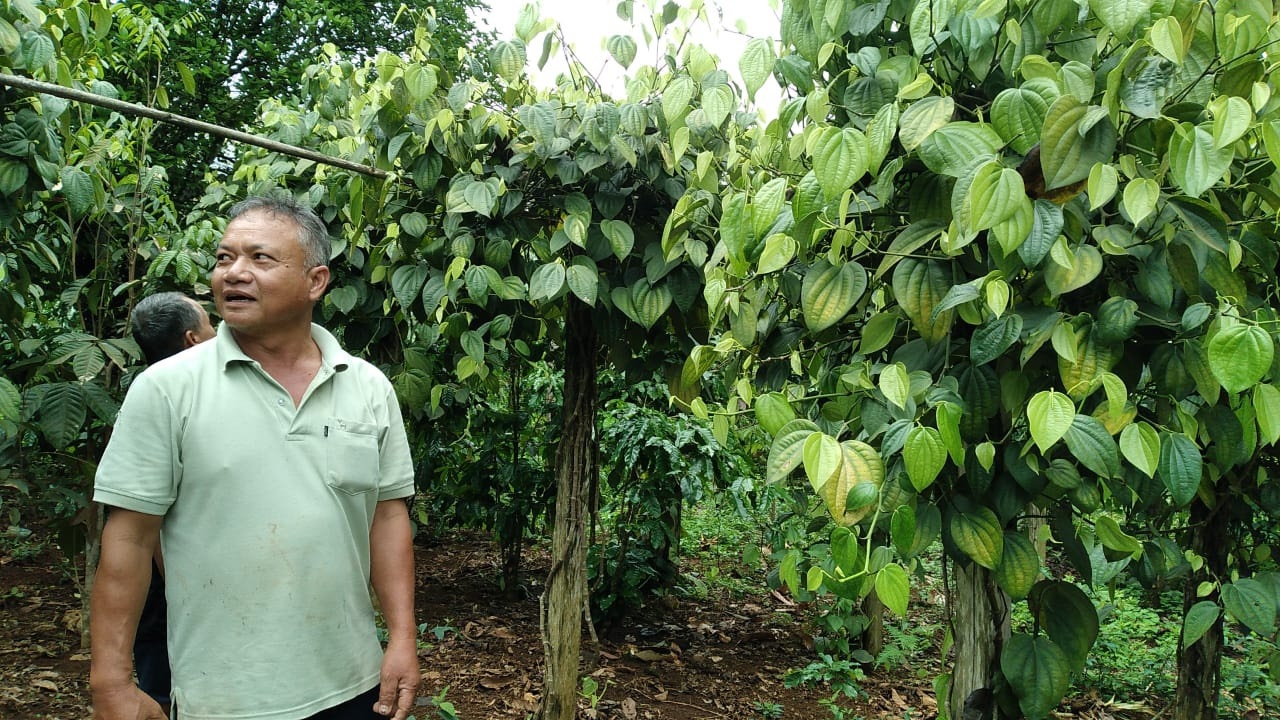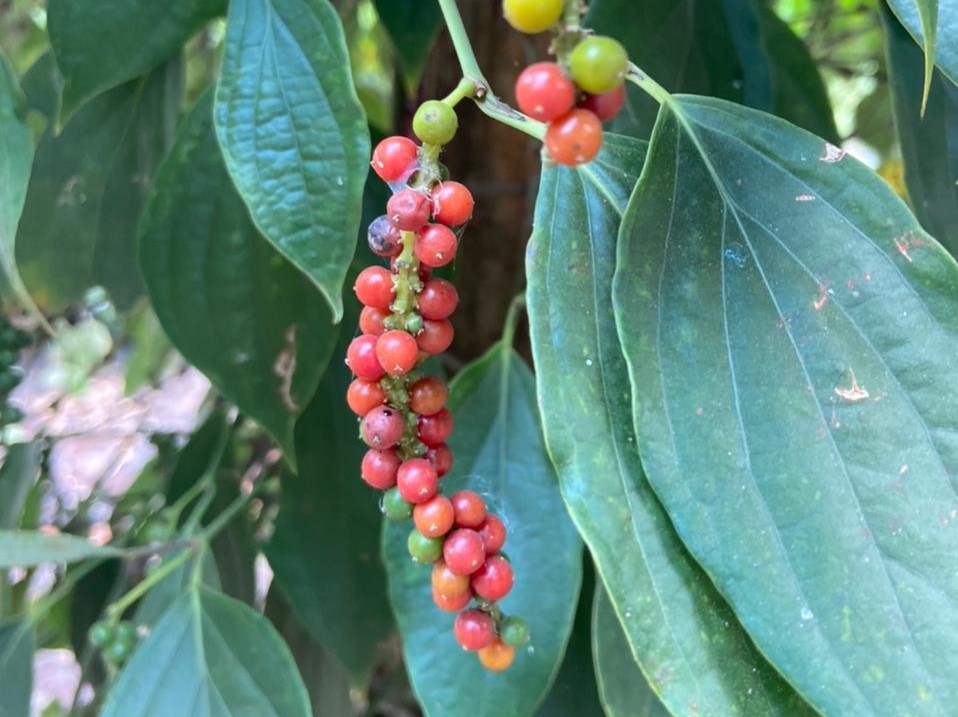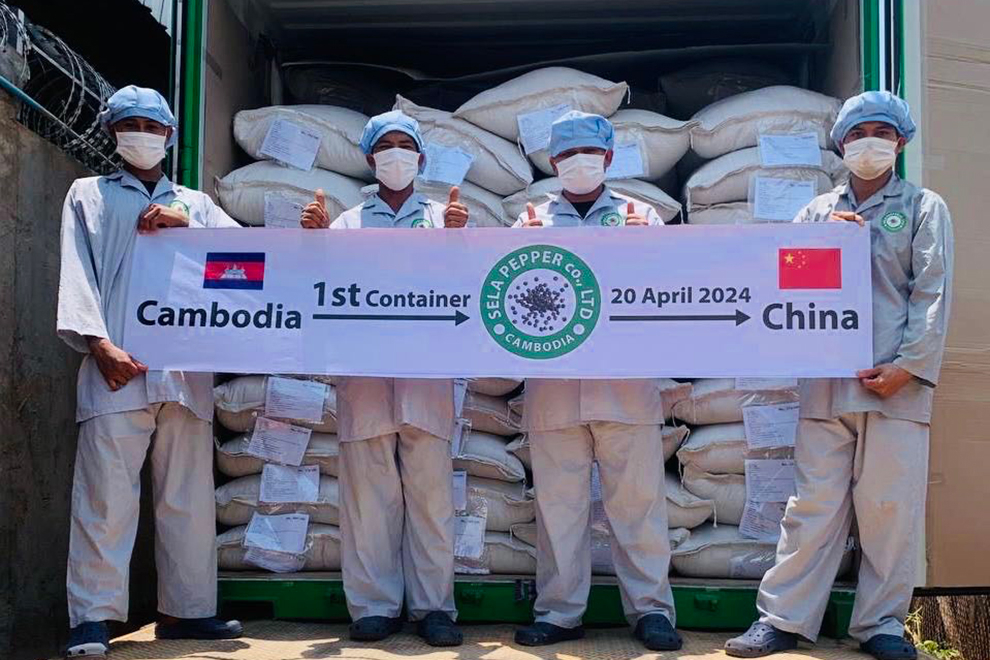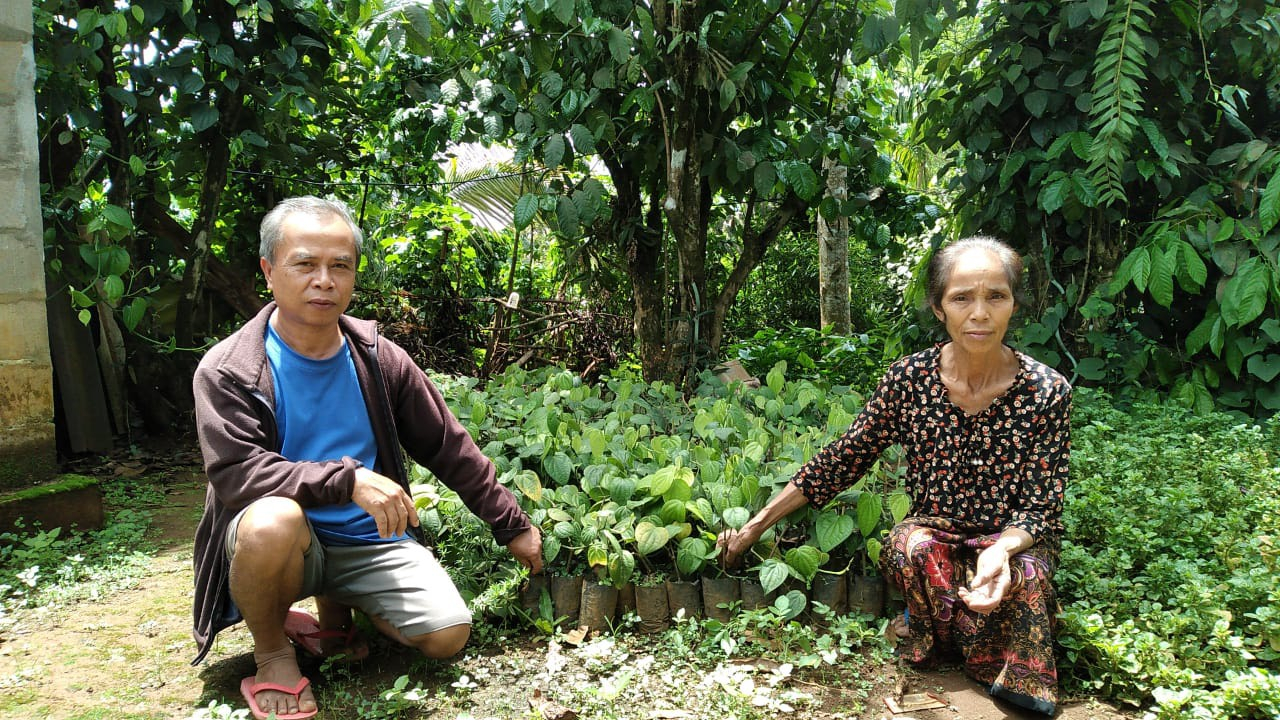Peppercorn is one of the most widely used spices in kitchens around the world, but ensuring its journey from production to table meets international food safety standards is not always straightforward. Due to limited resources and knowledge, smallholder farmers, who play a crucial role in its production in Southeast Asia, where the spice is extensively farmed, often face challenges in meeting food safety regulations. At the same time, informal trading across porous borders threatens the integrity of value chains and exacerbates contamination risks like excessive pesticide residues, which pose significant obstacles to trade.


To address these challenges, an STDF project brought together government authorities, industry partners and farmers in Cambodia and Lao PDR, with Viet Nam, to take a regional approach. Implemented by the Centre for Agriculture and Bioscience International (CABI), the project supported farmers in tackling key food safety challenges through public-private partnerships that strengthened compliance, restored confidence in regional and international markets, and helped unlock new exports.
Identifying Bottlenecks, Working Together to Strengthen Food Safety and Quality
The project enabled the participatory development and adoption of a Code of Practice (CoP), based on Codex standards. Local government authorities and other stakeholders worked with technical partners to understand the SPS issues in the peppercorn value chain, including needs and challenges in production, handling and processing. South-South cooperation enabled actors in Cambodia and Lao PDR to benefit from Viet Nam's longstanding knowledge and experience on peppercorn production. This led to a robust and practical framework to reduce and prevent pesticide and chemical contaminants in spices, and improve the safety and quality of production across the region.
The CoP was adapted and "localized" to reflect different practices, regulations and cultural norms in the three countries. Good Agricultural Practices (GAPs) and Good Hygiene Practices were rolled out with small-scale farmers and other stakeholders across Viet Nam, Cambodia, and Lao PDR. This dramatically improved safety, quality and traceability in peppercorn production and processing.
Partnerships were created and nurtured among farmers, government authorities, MSMEs and the private sector. Building on the concept of "Participatory Guarantee Systems", localized quality assurance networks were set up to encourage a collaborative process to set and verify standards, where farmers now share their knowledge and assess each other's farming methods. This has created a sense of mutual accountability and trust, encouraging farmers to consistently meet and exceed compliance requirements. These combined efforts have delivered strong results across the region.
Cambodia: Increased Yield, Income and Export Growth
In April 2024, the project enabled Cambodia’s Sela Pepper Company to reach a historic milestone, facilitating the country's first-ever export of black pepper to China, with a shipment of 30 tons, while also expanding its exports to the European Union. This progress enabled the country to record nearly US$10 million in pepper exports in Q1 2024, with further growth anticipated. At the same time, farmers in the project area in Cambodia also saw a 10% increase in yields and a 30% rise in income, thanks to improved farming techniques. Local stakeholders now recognize the economic benefits of stronger SPS capacities and the potential to replicate the G-PPP model for fresh produce and integrate it into government extension services.

Viet Nam: Achieving Export Standards
By introducing safer production models in Viet Nam, 100% of pepper samples from participating farmers met European Union import requirements facilitating smoother market access. Farmers also reported reducing pesticide use from 10 to two bottles per season, achieving a 30% cost reduction. Additionally, farmers were introduced to regenerative agricultural practices, diversifying their crops and promoting more sustainable farming methods that support resilience to climate change. Small-scale farmers in Viet Nam secured agreements with private sector companies like Simexco and Vietpepper, providing them with a stable and reliable market for their peppercorn.
Lao PDR: Expanding Farmer Engagement and Market Access
In Lao PDR, the project demonstrated the potential of peppercorn production to diversify and increase incomes for small-scale farmers, following supply chains disruptions caused by the COVID-19. The project’s G-PPP model supported the connection between local farmers and buyers, including in Viet Nam, enabling farmers to work together to improve and verify the quality and safety of their production, enhancing SPS compliance for new opportunities. In addition, whereas farmers in the region got an income from farming coffee just once a year, introducing peppercorn farming allowed them to generate income year-round, boosting income potential by $50–$70 per week from July to December.
Etu Green, a small woman-led business that grows and processes its own produce for local markets partnered with the Department of Agriculture to form a G-PPP working group. This community-level group equipped farmers with the skills and knowledge needed to improve safety and quality, enhancing their positioning to access new markets and increase income in the future.

Upscaling Opportunities
The project's success has catalysed broader application across spice and horticulture value chains in the region. In Cambodia, CAPSAFE, an EU/GIZ project, is investing to scale up the STDF-developed CoP, strengthening sustainable farming practices and expanding market opportunities for more smallholder farmers.
This STDF initiative has shown that its approach can enhance agricultural productivity and market access across ASEAN countries, offering a scalable solution to improve market access and facilitate safe trade in the region and beyond.
FAST FACTS:
- 30 tons of black pepper exported to China by Cambodia’s Sela Pepper Company, marking first-ever shipment
- US$10 million in Cambodian pepper exports recorded in Q1 2024
- 10% increase in yields and 30% rise in income for Cambodian farmers
- 10 safe peppercorn production models in Viet Nam, with 100% of samples meeting European standards.
- Good pesticide management practices in Viet Nam helped reduce pesticide use from 10 bottles per season to 2, resulting in a 30% cost reduction
- Etu Green (Lao PDR) secured new markets for peppercorn and other products at Vipo 2024 in Hanoi
LESSONS LEARNED
- Localised resources drive adoption – Developing Country Interpretation Guides (in local languages) to accompany the Code of Practice made GAP adoption easier and more effective for farmers.
- Collaborative models build accountability – The G-PPP approach empowered farmers by fostering partnerships with buyers and industry actors.
- Public-private partnerships accelerate impact – Strong collaboration between governments, industry partners, and farmers led to successful GAP implementation and long-term commitment.
- Sustainability requires local ownership – Engaging farmer groups and local authorities ensured ongoing support beyond the project’s timeline.
- Adaptability is key – Flexible planning and communication strategies kept the project on track despite challenges like COVID-19 disruptions.
- Gender and environmental sustainability matter – Addressing cross-cutting issues like gender equality and eco-friendly practices strengthened long-term success.
- South-South cooperation enhances impact – Knowledge-sharing between Viet Nam, Cambodia, and Lao PDR boosted problem-solving and accelerated best practice adoption.
This project was funded by the STDF and implemented by CABI, in partnership with public and private stakeholders across the Southeast Asia peppercorn supply chain.
For more information, visit the STDF website or the CABI news item